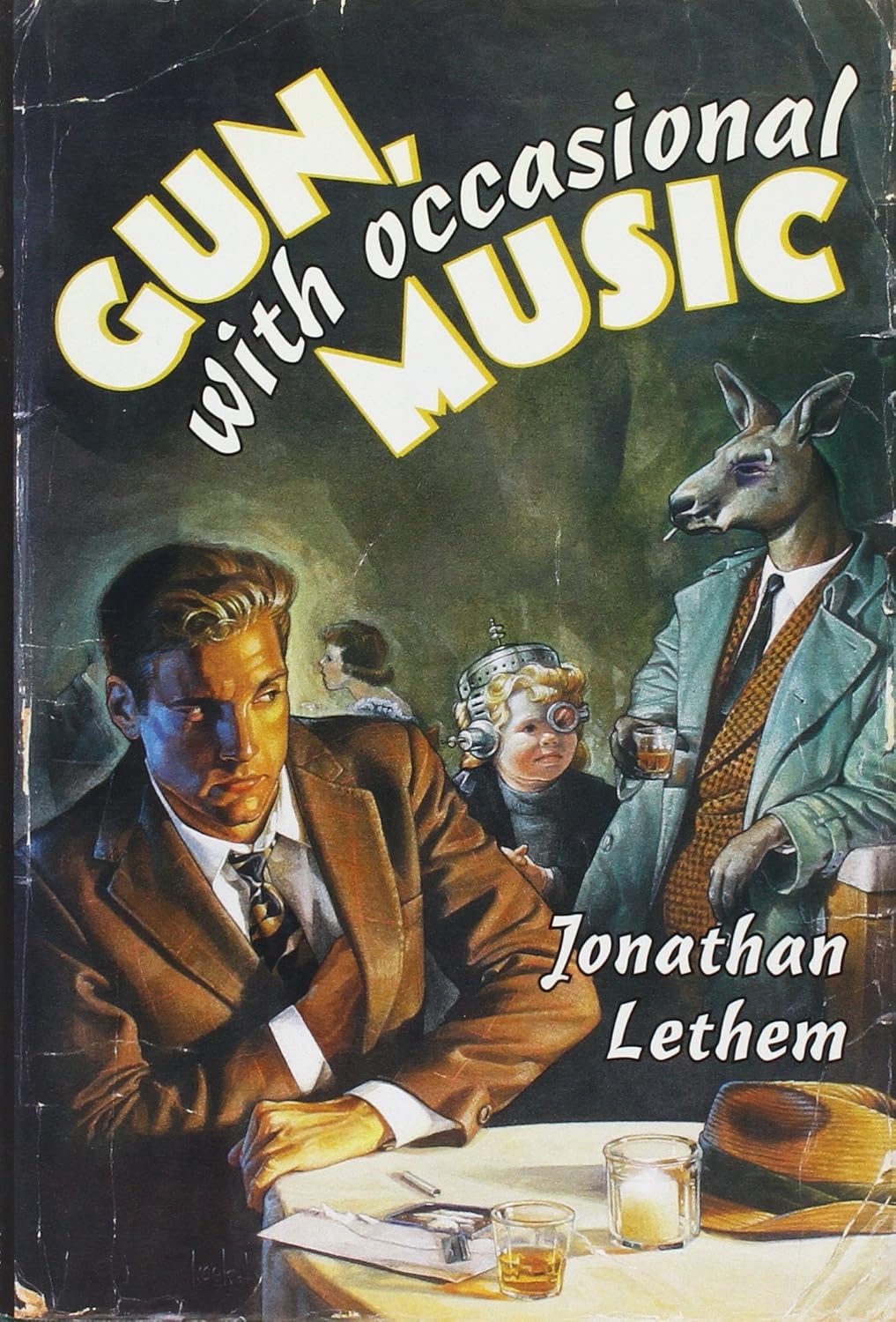Gun, with Occasional Music

Review
Gun, with Occasional Music is a sci-fi, hardboiled detective novel set in near-future Oakland, California. It follows Conrad Metcalf, a private inquisitor, as he tries to solve the murder of Maynard Stanhunt.
The cover sports a quote from a Newsweek review: “Marries ’s style and ’s vision.” I’ve read none of , and little , but this quote sums up Gun, with Occasional Music’s genre perfectly. From it brings in Metcalf—the hardboiled, down-on-his-luck private eye—and Phoneblum—the gangster—too many “dames” and “broads” to count, and the prose. From it borrows a focus on dystopian and surreal technology, drug use, cryogenic prisons, karma as a real currency, and uplifted animals.
The world in Gun, with Occasional Music is bleak. The parts made explicit in the novel are bad: murder, gangsters, techno-slaves, engineered babies, drug use for control of the citizenry, overbearing police, and curtailed rights. But it is even worse in the more subtle, blink-and-you’ll-miss-them details: organized rapes by the police, a prison-to-slavery system, an entire class of people that have no rights. Because it is a hardboiled novel, we see it at street level through Metcalf’s eyes, with all the grime and violence washing up against him. This makes it feel much more visceral than if it were written in another genre.
The mystery is a standard whodunit, with Metcalf trying to solve the murder of Dr. Stanhunt. Metcalf discovers an underworld where the gangster Phoneblum—and his enforcer, an uplifted kangaroo—sell illegal drugs, run slavery prostitution rings, and kill freely. Wanting to put all the pieces together is enough to keep the reader going, but the mystery isn’t itself the focus. Instead, what intrigued me the most was the world, but it was unfortunately only seen in passing. In a way, it’s similar to The Last Policeman, in which the apocalyptic setting carries the book instead of the murder mystery, although The Last Policeman is a far less bleak book, despite the impending end of humanity.
One thing I felt the book missed was a connection to its setting. It takes place in Oakland and Berkeley, but other than dropping some street names, it feels like it could actually be anywhere. I think part of the reason is the setting has changed so much from the present day that only the geography remains.
Overall, I enjoyed the book because of the world, although it made me feel uncomfortable, and the mystery was good enough to keep me interested.